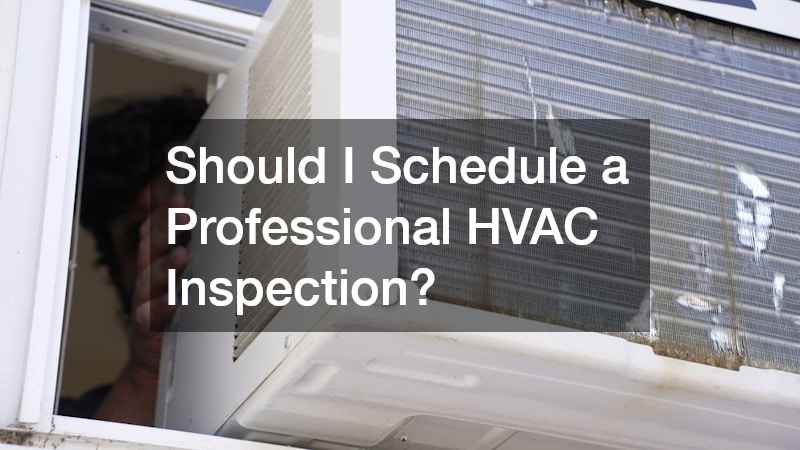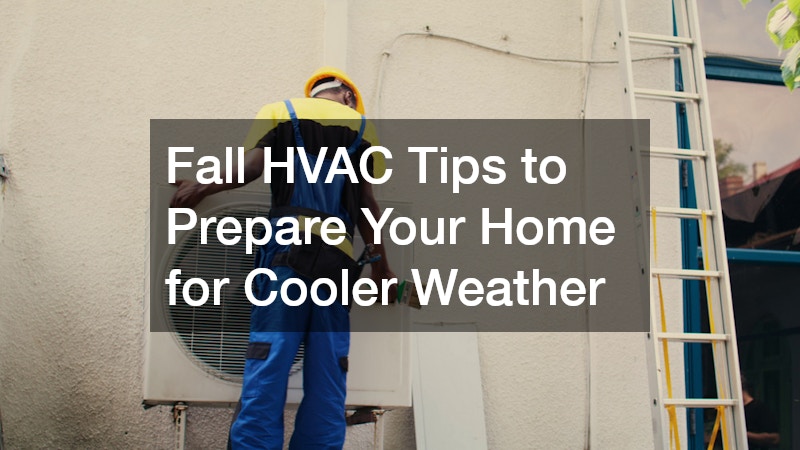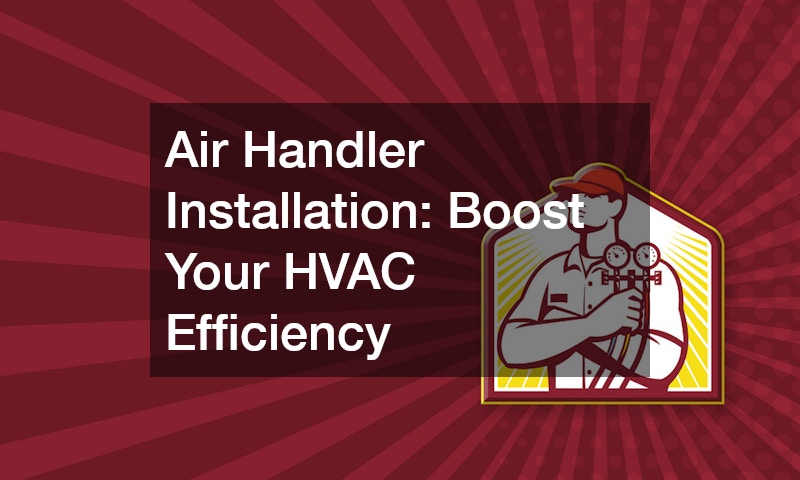As the leaves begin to change and temperatures start to drop, it’s the perfect time to prepare your home’s HVAC system for fall. Ensuring that your heating, ventilation, and air conditioning systems are ready for the cooler months can make a significant difference in comfort, energy efficiency, and system longevity. By addressing potential issues early, homeowners can prevent costly repairs during peak heating and cooling periods. Regular maintenance and proactive measures can also help improve indoor air quality and reduce energy bills, especially when relying on heating oil or running your furnace more frequently.
Whether you have a standard air conditioning unit, a furnace, or a hybrid system, following these fall HVAC tips will give you a head start on a smooth seasonal transition. From scheduling professional inspections with trusted HVAC contractors to performing simple DIY maintenance, there are numerous ways to protect your home. AC repair companies and HVAC companies offer valuable support, but understanding the basics yourself empowers you to make informed decisions. With careful planning and these actionable tips, your home will stay cozy, safe, and energy-efficient all fall and winter long.
How Often Should I Change My Air Filter in Fall?

Understanding the Importance of Clean Air Filters
A clean air filter is essential for optimal HVAC performance. Air filters prevent dust, allergens, and debris from circulating in your home, reducing strain on your air conditioning and heating systems. Neglecting filter replacement can lead to decreased efficiency, higher energy bills, and even damage to your HVAC system. HVAC companies often emphasize that a clean filter is the first step in avoiding costly repairs, as it ensures proper airflow and maintains system health.
Signs That Your Air Filter Needs to Be Changed
There are several indicators that your air filter may need attention. Reduced airflow, unusual odors, and visible dust accumulation are clear signs. Additionally, if anyone in your home experiences increased allergy symptoms, it may be time to replace your filter. AC repair technicians often recommend checking your filter at least once a month in the fall to prevent your air conditioning system or furnace from overworking.
Best Practices for Filter Replacement
When replacing air filters, select a filter compatible with your system and check its MERV rating for optimal performance. Remember to turn off your HVAC system before removing the old filter to avoid circulating dust. Establishing a seasonal schedule and marking your calendar for filter checks can make this task easier and more consistent. HVAC contractors often suggest keeping extra filters on hand to ensure timely replacements, which can extend the life of your air conditioning or heating system.
What Temperature Should I Set My Thermostat in Fall?
Recommended Thermostat Settings for Fall
As outdoor temperatures fluctuate, adjusting your thermostat appropriately is crucial. Many HVAC experts suggest setting your thermostat between 65–68°F during the day and slightly lower at night. This balance maintains comfort while preventing excessive energy consumption. AC repair companies and HVAC contractors often recommend these ranges to reduce strain on your heating and air conditioning systems.
How to Optimize Your Thermostat for Energy Savings
Using programmable thermostats effectively can save money on heating oil or electricity. By setting temperature adjustments for specific times, you reduce unnecessary energy usage when no one is home. HVAC companies note that even small changes can result in noticeable savings over the fall months, making it one of the simplest yet most impactful fall HVAC tips.
Utilizing Programmable or Smart Thermostats Effectively
Smart thermostats offer added convenience by allowing you to control your system remotely. This ensures that your furnace or air conditioning unit operates efficiently, even when schedules change unexpectedly. AC repair companies often highlight the benefits of pairing smart thermostats with routine maintenance, maximizing system performance throughout fall and winter.
How Can I Improve My Home’s Insulation Before Winter?
Types of Insulation to Consider
Proper insulation helps maintain indoor temperature and reduces reliance on HVAC systems. Consider options like attic insulation, wall foam, or weather stripping around doors and windows. Door contractors and garage door contractors can assist in sealing gaps that allow cold air to infiltrate your home, which complements your fall HVAC tips for energy efficiency.
How to Check for Insulation Deficiencies
Inspect your home for drafts, uneven temperatures, or high energy bills, all of which can indicate poor insulation. HVAC contractors may also perform energy audits to pinpoint areas of heat loss. Identifying deficiencies early helps prevent overuse of air conditioning or heating systems during the transition from fall to winter.
DIY Insulation Tips and Tricks
Simple DIY measures, such as adding weather stripping, caulking gaps, and insulating attics or basements, can improve home comfort. Collaborating with door contractors ensures that external openings are sealed properly. Combined with regular HVAC maintenance and AC repair checks, these measures keep your home cozy while minimizing energy costs.
Should I Schedule a Professional HVAC Inspection?

The Benefits of a Professional Inspection
Scheduling a professional inspection ensures that your heating and cooling systems are in optimal condition for fall. HVAC contractors can identify potential issues with air conditioning, furnaces, or heating oil systems before they become expensive repairs. AC repair companies frequently recommend inspections to avoid system breakdowns during colder months.
What to Expect During an HVAC Inspection
During an inspection, a technician will check airflow, clean components, and assess the efficiency of your system. They may also examine thermostats, filters, and ductwork to ensure everything functions properly. These evaluations are particularly helpful for homes relying on both air conditioning and heating systems.
When to Schedule Your HVAC Inspection
Fall is the ideal time for an inspection, giving your HVAC system time to recover from summer use. Booking early with HVAC companies helps avoid the seasonal rush. Timely inspections reduce the likelihood of emergency AC repair or furnace repair services, which can be costly and disruptive.
What Maintenance Tasks Can I Do Yourself for My HVAC System?
Basic Maintenance Tasks Every Homeowner Can Do
Homeowners can perform simple tasks such as cleaning vents, checking filters, and inspecting for visible leaks. These proactive measures complement professional inspections and reduce the frequency of AC repair calls. HVAC contractors advise regular DIY maintenance to ensure smooth seasonal transitions.
Tools You Need for DIY HVAC Maintenance
Basic tools include screwdrivers, vacuum cleaners, and coil brushes. Having these on hand allows you to handle small issues safely and efficiently. AC repair companies often provide guidance on proper techniques to prevent damage while performing routine maintenance.
Common Mistakes to Avoid During Maintenance
Avoid neglecting safety protocols, bypassing professional recommendations, or ignoring warning signs. Mistakes can lead to costly repairs or reduce system efficiency. By following fall HVAC tips and combining DIY efforts with professional support, you maintain a healthy and reliable HVAC system throughout autumn.
How Can I Reduce Heating Costs This Fall?
Tips for Energy-Efficient Heating
Reducing heating costs begins with ensuring your HVAC system is running efficiently. Regular furnace repair and timely air conditioning maintenance can prevent energy waste. HVAC contractors recommend sealing leaks in ductwork and insulating pipes to retain heat. Additionally, maintaining optimal thermostat settings and using programmable options allows your home to stay comfortable while minimizing heating oil usage.
How Weather Stripping Can Save You Money
Weather stripping around doors and windows is an inexpensive way to improve energy efficiency. Door contractors can install high-quality strips that prevent cold air from entering and warm air from escaping. Garage door contractors can also enhance insulation on larger openings, which is particularly beneficial for homes with attached garages. Combined with proper HVAC maintenance, these improvements help lower overall energy bills.
Using Space Heaters Safely and Efficiently
Space heaters can supplement your heating system without dramatically increasing energy costs. Ensure that heaters are placed away from flammable materials and never left unattended. Using them in conjunction with a well-maintained furnace or air conditioning system provides targeted warmth, allowing you to rely less on heating oil and more on efficient HVAC operation.
What Are the Signs My HVAC System Needs Repair?

Common Symptoms of HVAC Issues
There are several warning signs that your HVAC system may require attention. Reduced airflow, inconsistent temperatures, strange noises, and unusual odors can indicate problems with air conditioning or furnace units. HVAC companies stress that addressing these symptoms early can prevent the need for more extensive AC repair.
How to Differentiate Between Simple Issues and Major Repairs
Simple problems might include clogged filters or minor thermostat malfunctions, while major repairs often involve refrigerant leaks, motor failure, or duct damage. AC repair companies can assess the severity of issues and recommend appropriate solutions. Understanding the difference allows homeowners to make informed decisions about when to attempt DIY fixes versus calling a professional.
When to Call a Professional for Repairs
If you notice persistent performance issues, strange noises, or spikes in energy bills, it’s time to contact HVAC contractors. Prompt attention ensures that minor problems don’t escalate, saving both time and money. AC repair companies and HVAC companies are equipped to handle complex repairs, including heating oil systems, furnaces, and air conditioning units.
How Can I Improve Indoor Air Quality in Fall?
The Role of Humidifiers in Fall
As outdoor air cools, indoor humidity often decreases, leading to dry skin, static electricity, and respiratory discomfort. Humidifiers can help maintain balanced moisture levels, improving comfort and reducing strain on heating systems. HVAC contractors often recommend pairing humidifiers with regular air conditioning repair and maintenance to maximize system efficiency.
How to Prevent Dust and Allergens
Dust and allergens accumulate quickly during fall, impacting indoor air quality. Regularly cleaning vents, changing filters, and vacuuming with HEPA filters can significantly reduce airborne particles. AC repair companies frequently advise these practices alongside professional HVAC inspections for the best results.
Advantages of Air Purifiers for Autumn
Air purifiers complement HVAC systems by filtering fine particles and allergens that standard filters may miss. Incorporating them during fall ensures cleaner air throughout your home, particularly in bedrooms and living areas. HVAC companies note that air purifiers also reduce strain on heating and air conditioning units, contributing to overall energy efficiency.
What Should I Do If My HVAC System Is Noisy?
Common Causes of HVAC Noise
Unusual noises from your system may indicate loose components, worn belts, or motor issues. Both air conditioning and furnace units can produce rattling, banging, or hissing sounds when maintenance is needed. HVAC contractors often list noise as a key sign that professional inspection or AC repair may be necessary.
Temporary Fixes You Can Try
Tightening screws, lubricating moving parts, and cleaning debris from vents can help reduce minor noises. While these fixes may provide temporary relief, they don’t replace the need for professional service. AC repair companies can address underlying issues to prevent long-term damage and inefficiency.
When to Seek Professional Help for Noise Issues
Persistent or worsening sounds indicate more serious problems that should be addressed by HVAC contractors. Scheduling timely service avoids further damage to air conditioning, furnaces, or heating oil systems. Garage door contractors and door contractors may also assist if external structures contribute to noise transmission.
Are Air Duct Cleaning Services Worth It?

Benefits of Clean Air Ducts
Clean air ducts improve airflow, reduce allergens, and enhance overall HVAC efficiency. HVAC companies emphasize that removing dust and debris prevents unnecessary strain on air conditioning and furnace systems. For homes with older ductwork, regular cleaning is an essential part of fall HVAC tips.
Signs Your Air Ducts Need Cleaning
Visible dust, mold, unusual odors, and fluctuating temperatures are indicators that duct cleaning is needed. AC repair companies often recommend inspections to determine if cleaning will have a significant impact on system performance.
By taking a proactive approach to HVAC maintenance, homeowners can enjoy a comfortable and energy-efficient home throughout fall and winter. Following these fall HVAC tips, from timely filter changes and thermostat adjustments to proper insulation and professional inspections, reduces the likelihood of costly AC repair or furnace repair. HVAC companies and contractors provide valuable expertise, but combining their services with DIY maintenance ensures your system runs optimally.



